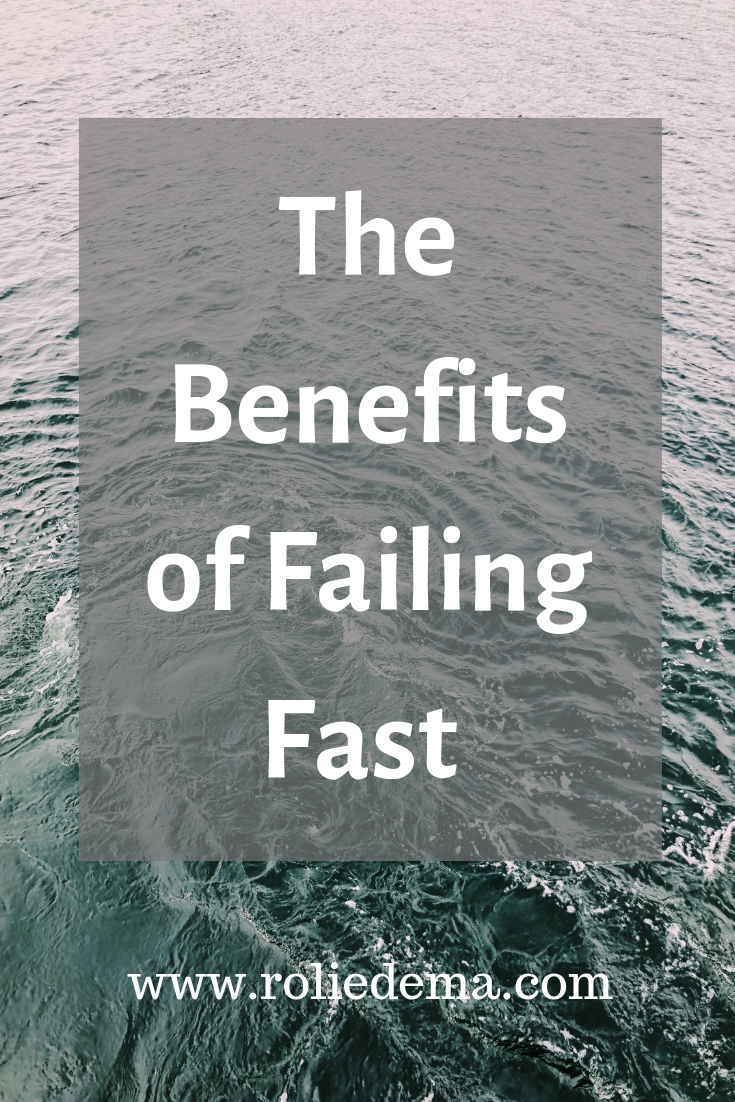The Benefits of Failing Fast
Don't be scared of failure - in fact - fail fast. Let's talk about the benefits of failing fast and why taking continous action is recommended.

What's so great about failing fast?
As we talked about before, making mistakes can be very beneficial for the learning process.
So then, if you're going to make mistakes, it makes sense for you to make them quickly and move on.
To fail fast essentially means to exponentially speed up the learning curve by putting yourself in as many challenging and educational situations as possible. It means not holding yourself back for fear of failure, but using each failure as a springboard for the moment when you finally get the hang of what you've been trying to do.
There are so many benefits of failing fast, but let's consider three:
The Time Will Pass Anyway
The following quote emphasizes one of the many benefits of failing fast:
"Never give up on a dream just because of the time it will take to accomplish it. The time will pass anyway."
At the end of the day, the time will pass anyway.
So you can decide to use the time to work towards a goal, even though you might fail, or sit there and dream about all the possibilities that could have occured if you actually took action.
Since the time will pass anyway, it makes sense to try your very best and see how close you can get - to see if you can actually even achieve your goal! This is a much more productive use of time than doing nothing. Even you you don't achieve your goal in the specific time-frame that you originally planned, by trying, failing and learning, you'll have given yourself valuable experience that will help you reach your goal over time, so long as you don't give up.
On that note, here are some things you can do to feel more in control of a goal that you've had for a long time with seemingly no progress.
Failing 'slowly' can be painful
To fail fast means to fail often.
It means constantly trying new solutions to a problem and like Winston Churchill said "stumbling from failure to failure with no loss of enthusiasm".
If you learn to fail fast, you learn to actually enjoy failure as part of the experience. It becomes normal to you and you realise that it is just part of the journey to reaching your goals, which every succcessful person experiences too.
If your failures are few and far between, however, you develop a unhealthy view of failure. Failure becomes something you dread. You might even associate it with some really terrible parts of your life. Failing slowly can be painful. If we have failed only a few times, and really badly, it's easier to link such failures to feelings of low self esteem. As a result, you start to avoid any situation where you might fail, and you stop taking risks. And that's a shame, because the taking of those risks repeatedly is exactly what triggers success.
After a while, you start to fail 'smarter'
Another benefit of failing fast is that you get good at failing.
Because you learn from each failure, your failures start to become less severe, and more deliberate. You start to understand the game more.
And thus you actually begin to actively seek and crave opportunities for failure, because they are also secretly opportunities for success. This hunger for failure is something I've experienced, and I realise that with every failure I improve my skills.
The real beauty of failing fast is the momentum you build up. You just keep grabbing your chances and learning. Knowledge builds on knowledge, and there's so much progress you can make in a short amount of time because you're proactive.
Although you're still failing, you're failing smarter because you know what detrimental mistakes to avoid with every new endeavour.
When you fail fast, your failures start to get more efficient and effective, until the moment when your failures starts to produce results that look a lot like success.
Thanks for reading! Have you experienced any other benefits of failing fast?
Thanks for reading! If you liked this content, share with a friend:
Recent Articles
-
5 Things to Stop Doing If You Want to Feel More Fulfilled
Feb 21, 26 05:35 PM
Are you unintentionally engaging in behaviours that leave you feeling depleted and empty? Here are 5 things to stop doing if you want to feel more fulfilled. -
5 Subtle Habits That Quietly Transform Your Life Over Time
Jan 25, 26 08:21 PM
Progress towards the things that matter isn't usually loud or dramatic. Here are 5 subtle habits that quietly transform your life over time. -
Inner Work with Marcus Lynn | How to Make Change More Realistic
Jan 19, 26 06:24 PM
In this spotlight interview, therapist Marcus Lynn explains how we can begin to see emotions as information and make change more realistic in our lives.





New! Comments
Have your say about what you just read! Leave me a comment in the box below.